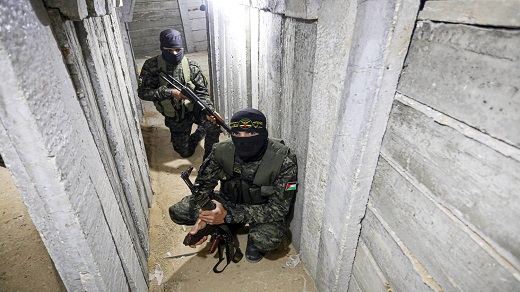In the realm of Israeli politics and military strategy, a fascinating and ongoing clash of leadership has emerged between two prominent figures – Benny Gantz and Benjamin Netanyahu. This struggle for dominance in decision-making and the subsequent impact on the Gaza strategy has sent shockwaves through Israel’s political landscape and the world at large. In this article, we delve into the complexities of this power struggle and its implications for the future of Israel’s security.
The Battle for Leadership
At the heart of this political tug-of-war is the former Chief of General Staff of the Israel Defense Forces (IDF), Gadi Eisenkot. His tenure at the helm of the IDF was marked by a reputation for strategic brilliance and a deep commitment to Israel’s security. Following his retirement, Eisenkot did not fade into obscurity; instead, he ventured into the political arena, hoping to use his strategic expertise to shape Israel’s future.
Benny Gantz’s Ascent
Benny Gantz, a former IDF Chief of General Staff himself, entered politics with the creation of the Blue and White Party. This new political force posed a significant challenge to Netanyahu’s long-standing rule. Gantz’s military background and leadership experience resonated with many Israelis, positioning him as a formidable rival to Netanyahu.
The Clash of Strategies
The key point of contention in this leadership battle has been the strategy employed by Israel in dealing with the Gaza Strip. Netanyahu’s approach, marked by a more aggressive stance and military force, has faced criticism both domestically and internationally for its perceived heavy-handedness. Eisenkot, on the other hand, advocates for a more nuanced and strategic approach, emphasizing the importance of dialogue and diplomacy.
The Importance of Strategic Thinking
Eisenkot’s perspective stems from his extensive military experience and a deep understanding of the complexities involved in managing the Gaza situation. He believes that a comprehensive strategy, one that combines military strength with diplomatic efforts, is the key to long-term stability and security in the region.
The Humanitarian Crisis
One of the critical consequences of the ongoing conflict in Gaza is the humanitarian crisis that has unfolded over the years. The people of Gaza have endured immense suffering, with limited access to essential resources, including food, clean water, and healthcare. Eisenkot’s approach seeks to address these pressing humanitarian concerns, recognizing that the well-being of the civilian population is vital to any lasting peace.
International Implications
The Gaza conflict has far-reaching international implications, with countries across the globe closely monitoring developments in the region. Eisenkot’s more diplomatic approach has garnered support from some international actors who believe that a shift towards dialogue and cooperation could lead to a more sustainable solution.
Challenges Ahead
While Eisenkot’s vision for a more strategic and diplomatic approach has gained traction, it is not without its challenges. Netanyahu, a seasoned politician with a significant following, continues to push for his more aggressive stance. The battle for leadership and the direction of Israel’s Gaza strategy remains fiercely contested.
Conclusion
In the ever-evolving landscape of Israeli politics and military strategy, the clash between Benny Gantz and Benjamin Netanyahu over the Gaza strategy is a significant and ongoing narrative. Gadi Eisenkot’s entry into the political arena adds a layer of complexity to this struggle, as his vision for a more strategic and diplomatic approach challenges the status quo. The outcome of this power struggle will undoubtedly shape the future of Israel’s security and its relationship with the Gaza Strip.



